Graduate Resources
Documents and information to assist you during your time as an FSU graduate student.
Documents for Doctoral Students
- Doctoral Program of Study
- Doctoral Supervisory Committee Form
- Doctoral Prelim Exam Results Form
- Doctoral Prospectus Results Form
- Student Graduation Checklist (Ph.D.)
- Program of Study Adjustment Form
- College Doctoral Program Policy under revision
Department Documents
*Please note: Some of these documents have not yet been updated to reflect the department’s name change (Health, Nutrition, and Food Sciences) as of Sept. 20, 2023, but they are still valid and otherwise current.
- HNFS Graduate Student Handbook [ 2023-24 | 2022-23 | 2021-22 | 2020-21 | 2019-20]
- HNFS Graduate Course Request Form for Defenses and Exams
- HNFS Graduate Course Request Form for All Other
- HNFS Travel Authorization Form
See Financial tab for information on assistantships.
Graduate Assistantships
Graduate assistantships are awarded through the department.
Teaching Assistantship (TA)
Each department determines the review process for selection of students to receive a Teaching Assistantship (TA). The Department of Health, Nutrition, and Food Sciences (HNFS) has an online TA application that is open only to current students and those formally admitted to FSU. A new application must be submitted each academic year. Please note that there are a limited number of TA positions and that preference will be given to doctoral students. If selected for a teaching assistantship, the department will send you an offer letter for the appropriate timeframe.
Research Assistantships (RA)
Research Assistantships (RA) are determined by the research faculty member in conjunction with the department chair. If you are an HNFS doctoral student or a doctoral applicant, please directly contact the appropriate research faculty member(s) to see if funding and space in the lab is available. All current master’s students considering the thesis route may also contact the appropriate HNFS faculty member(s). If selected for a research assistantship, the department will send you an offer letter for the appropriate timeframe.
Note: Graduate Assistantships in Strength and Conditioning (that work with the athletes) are handled by the Athletic Department and not the Department of Health, Nutrition, and Food Sciences.
This orientation has been created for newly admitted graduate students (master’s and doctoral) in the Department of Health, Nutrition, and Food Sciences (HNFS) in the FSU College of Education, Health, and Human Sciences. You will learn about academic expectations and campus and community resources. Whether you are attending a university in the U.S. for the first time or have attended FSU before, the graduate student experience is filled with challenges and rewards. We are here to support you during your journey to becoming a successful professional in your field of study.
Fall 2024
Information for Fall 2024 orientations will be posted after April 2024.
Requisite Student Orientations
The department orientation for HNFS is one of many orientations that will be required; the Start-Up Week schedule will be announced in May. We ask that you dress “business casual” for the in-person events. Please note that the weather in Florida is variable and temperature inside buildings can fluctuate (we recommend you bring an umbrella and a sweater/light coat).
Students are required to be present in Tallahassee the week before classes begin.
Department Orientation Contact
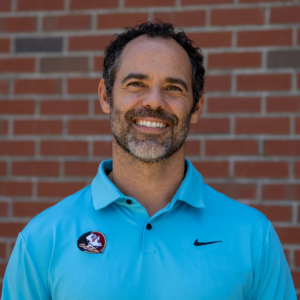
HNFS Graduate Program Director
Michael Ormsbee
Professor
mormsbee@fsu.edu
430 SAN
Additional Resources
For additional policies, please refer to individual department pages. All college and departmental policies are in compliance with university policies.
Current Doctoral Students
Tooyib Azeez
Exercise Physiology
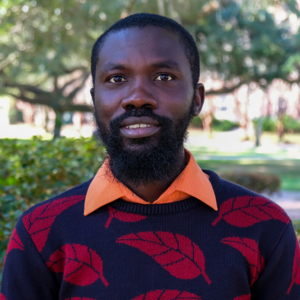
- Erectile dysfunction
- Vascular dysfunction in atherosclerosis
Tooyib is a Ph.D. Candidate in Exercise Physiology. He is from Nigeria where he obtained his medical degree at the University of Lagos in 2011, a post-graduate diploma in education from Ahmadu Bello University Zaria in 2017, and a master’s degree in Physiology from Usmanu Danfodiyo University Sokoto in 2019. He is currently studying erectile dysfunction and vascular dysfunction associated with atherosclerosis in the integrative neurovascular physiology lab under Dr. Justin La Favor.
Paul Baker
Nutrition and Food Science
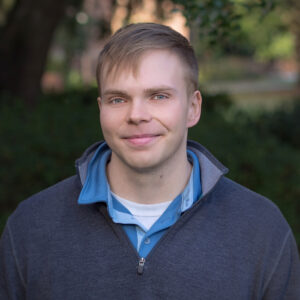
- Physiological & metabolic adaptations to nutritional and/or exercise interventions in humans
- High altitude
Paul is a doctoral student in the nutrition and food sciences Ph.D. program working under Dr. Berryman. Paul graduated with his B.S. in Exercise Science and M.S. in Exercise Physiology from the University of Kentucky. During his Master’s, Paul obtained plenty of teaching and research experience working under excellent faculty. The experience encouraged him to purse a Ph.D. and make an impactful difference going forward. Paul’s long-term career goal is to work as an assistant professor, teaching and performing research.
Jingjing Cheng
Nutrition and Food Science
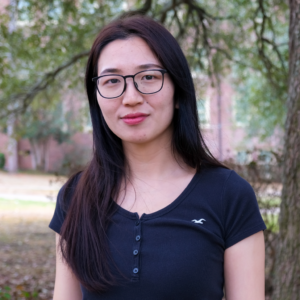
- Edible film based on plant protein
- Improve the film properties of protein film
- The relationship between protein structure and function
Jingjing is a doctoral student in the Nutrition and Food Science program working under Dr. Leqi Cui. Jingjing received her M.S. degree in Food Science from Shaanxi University of Science and Technology, China. During her master’s thesis, she worked on the factors that influence the physical and chemical stabilities of lipids in oil-in-water emulsion. After graduation, she joined Henan Academy of Agricultural Sciences as an assistant researcher to work with the analysis of the volatile compounds of spicy plants. Now she is focusing on the edible film based on pea protein and trying to apply various methods to improve the mechanical, gas/moisture-barriers properties of edible film, and finding out the underlying mechanism of film formation. She feels that pursuing her Ph.D. at FUS is a precious experience and will help her to gain more skills to further pursue her academia career.
Saurabh Kadyan
Nutrition and Food Science
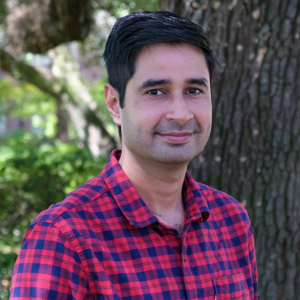
- Dietary modulation of gut microbiome for improving ageing-associated cardiometabolic and neurocognitive health
- Influence of maternal dietary patterns on neonatal gut microbiome and metabolic health
Saurabh is a doctoral student in the Nutrition and Food Science program working under the supervision of Dr. Ravinder Nagpal. He received his bachelor’s and master’s degrees from ICAR-National Dairy Research Institute (NDRI), Karnal (India) in the subjects of Dairy Technology and Dairy Microbiology, respectively. During his master’s thesis, he worked to develop the miniaturized, user-friendly, instrument-free and point-of-need colorimetric tests for detection of E. coli and coliforms in milk. Thereafter, he gained three years of industrial experience in India’s largest dairy cooperative “AMUL” before joining as a scientist at his alma mater in 2018. He feels that pursuing his Ph.D. from FSU will hone his academic and research skills in the field of nutrition and food science, which will be helpful for his career progression in future.
Leila Khalili
Nutrition and Food Science
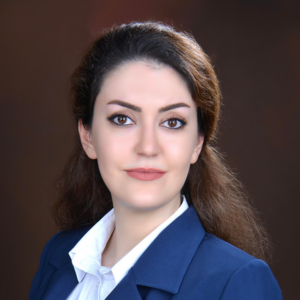
- Nutrition and chronic diseases (metabolic syndrome, diabetes, cardiovascular diseases)
- Functional foods
- Complementary and alternative medicine
I am a doctoral student studying nutrition and food science under the mentorship of Dr. Gloria Salazar. I earned my Bachelor of Science in Nutrition Sciences and Master of Science in Health Sciences in Nutrition both from Tabriz University of Medical Sciences. My main research area includes studying the role of nutrition in chronic disease management.
Grant Laskin
Exercise Physiology
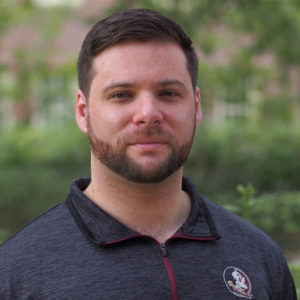
- Cellular / molecular regulation of skeletal muscle mass
- Resistance training and nutrition intervention as nonpharmacological treatment for populations at risk of muscle atrophy (elderly, cancer, neuromuscular disease)
- Human performance optimization in athletic populations
Grant received his BS and MS in Exercise Physiology at Southern Connecticut State University, where his major focus was athletic optimization and the study of specific neuromuscular contributions to exercise performance. Grant has dual interests in high performance populations and mitigation of atrophic and neurogenerative disease. He is passionate about translational research and enjoys recruiting both applied models with human subjects and more basic animal / cell culture models to investigate the changes from exercise and nutrition intervention at both functional and molecular levels.
In his free time, Grant enjoys lifting weights, enjoying the outdoors, cooking and trying new cuisine, meditating, and spending time with his loved ones. His philosophy is that to “keep the gifts you have, you must be willing to share them with others,” thus encouraging an attitude of service and compassion with people in his life.
Joe Laudato
Exercise Physiology
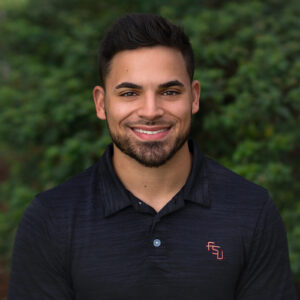
- Ethanol-induced degradation of skeletal muscle
- Relationship between cancer cachexia and diet
- Skeletal muscle preservation in a diseased state
Joe is a doctoral student pursuing a Ph.D. in Nutritional Sciences under the guidance of Dr. Jennifer Steiner. He received his M.S. in Exercise Physiology at Kent State University under Dr. Adam Jajtner, where he investigated human performance and immunological responses to acute high-volume resistance exercise with ergogenic aids. During his time at FSU, he has shifted his research focus to the basic sciences in rodent models, observing the effects of alcohol consumption on skeletal muscle protein synthesis. Following his Ph.D he plans to continue his career in academia, and has an interest in the development of therapeutic modalities utilizing his research experience.
Amy Mullins
Nutrition and Food Science
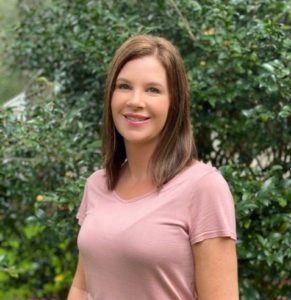
- Amy Mullins Is a Ph.D. student in the Department of Nutrition, Food, and Exercise Sciences, at Florida State University, pursuing a degree in Nutrition Science under the direction of Dr. Bahram Arjmandi. Amy has Bachelor’s degrees in Health Science Education (University of Florida) and Food and Nutrition (Florida State University), and a Master’s degree in Clinical Dietetics (Florida State University). She is a Registered Dietitian and Family & Consumer Sciences Extension Educator with the University of Florida Institute of Food and Agricultural Sciences Cooperative Extension Service (UF/IFAS) where she develops and implements community programs focused on nutrition, chronic disease prevention, general health/wellness, and food safety. Amy’s research focus is in the area of bioactive phytochemical components of plants and nutritional intervention for prevention and management of chronic inflammatory mechanisms.
Ian Gwoncheol Park
Nutrition and Food Science
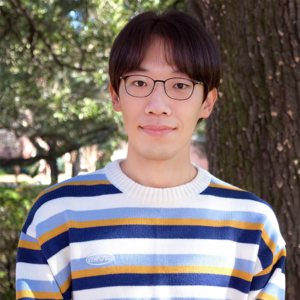
- The role of gut pathobiome signatures in host neurodegenerative diseases including Alzheimer’s disease
- The interaction of gut microbiome with specific dietary constituents and pre/probiotics in context to host cardiometabolic and neurodegenerative health
Gwoncheol is a doctoral student in the Nutrition and Food Science Ph.D. Program under the supervision of Dr. Ravinder Nagpal. Gwoncheol graduated with his B.S. in Food Science and Technology in 2018 and M.S. in Food Science and Biotechnology in 2020 from Sejong University, Korea. He is eager to find out more about the underlying mechanisms that induce changes in the gut microbiota and the consequences of microbial changes. He wants to suggest therapeutic strategies through the modulation of gut microbiota for various diseases. Following his Ph.D., he will continue to grow his research network, adroitly utilize various tools that can modulate the gut microbiome and attain a comprehensive understanding of modulation through a postdoctoral research position.
Aida Rahimi Kahmini
Exercise Physiology
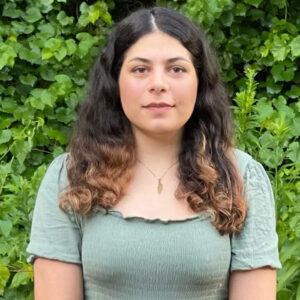
- Cardiometabolic disease
- Immune signaling and metabolic pathway
Aida is a Ph.D. student in Exercise Physiology. She is from Iran where she obtained her bachelor’s in radiology at Medical University of Kurdistan in 2016. She is currently working in Dr. Michelle Parvatiyar’s lab. The lab’s research is focused on how remodeling of proteins in the cardiac sarcolemma influences cardiac function as well as the development of cardiometabolic disease. Their research also examines immune signaling and metabolic pathways in order to have a better understanding the factors affecting the communication between adipocytes and cells in the heart.
Saiful Anuar Bin Singar
Nutrition and Food Science

- The effects of functional food and phytonutrients on cardiovascular, musculoskeletal, and cognitive health and function
- The effects of sports nutrition and supplementation on sports performance, recovery and body composition
Chunya Tang
Nutrition and Food Science
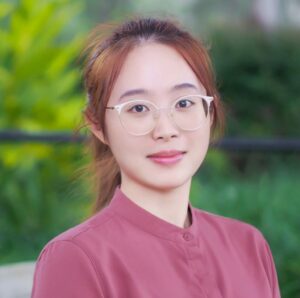
- Food safety and quality
- Protein immunochemistry
- Protein functionality
Chunya is a doctoral student in Nutrition and Food Science under the supervision of Dr. Qinchun Rao. She graduated from Jiangnan University in 2019 and earned her master’s degree in Nutrition and Food Science in 2021 from Florida State University. In her master’s project, Chunya focused on plant protein functionality. Chunya’s career goal is to become a faculty at a research university and assist students in developing their potential future.
Abigail Tice
Exercise Physiology
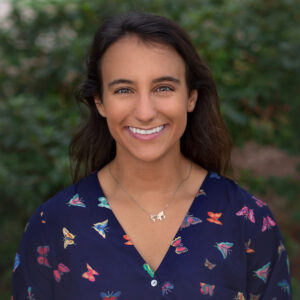
- Physiology of skeletal muscle
- Chronic diseases and chronic stress
- Environmental science
Abigail came to FSU from West Virginia University, with a masters degree in Exercise Physiology to work with Dr. Jennifer Steiner. She completed her masters degree on the Effects of Obesity, Chronic Stress, and Exercise on Pancreatic Health and will be working with skeletal muscle and acute and chronic alcohol while at FSU.
Yaqi Zhao
Nutrition and Food Science
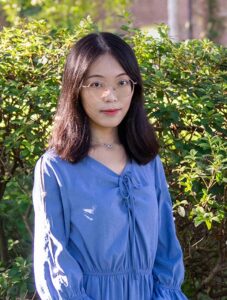
- Food allergen detection
- Protein immunochemistry
- Food safety and quality
Yaqi is a doctoral student in Nutrition and Food Science program under the guidance of Dr. Qinchun Rao. After receiving her bachelor’s degree in Food Quality and Safety at Jinan University (China) in 2019, she completed her master’s degree in Nutrition and Food Science at Florida State University in 2021. Yaqi worked on the development of enzyme-linked immunosorbent assay for the detection of finfish tropomyosin for her master’s project, which has the potential to fight seafood fraud and improve food safety. She desires to continue her research career in academia.
Xiangyu Zheng
Exercise Physiology
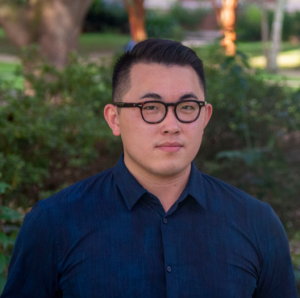
- Exercise physiology
- Acute response and chronic adaptation of the cardiovascular system to resistance training
- Personalized exercise prescriptions through genetic research tools
- Blood flow restriction training
- Microgravity training
